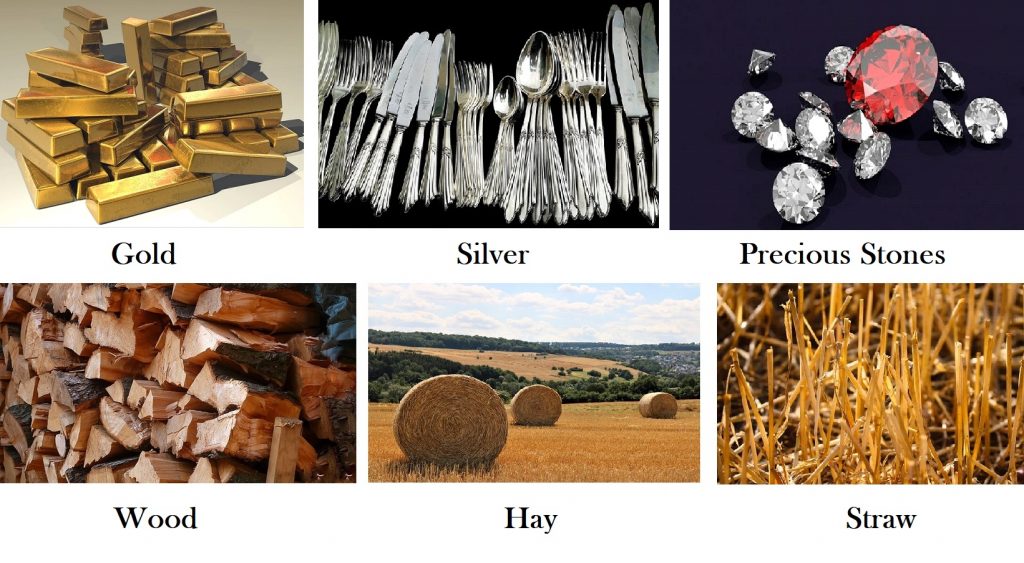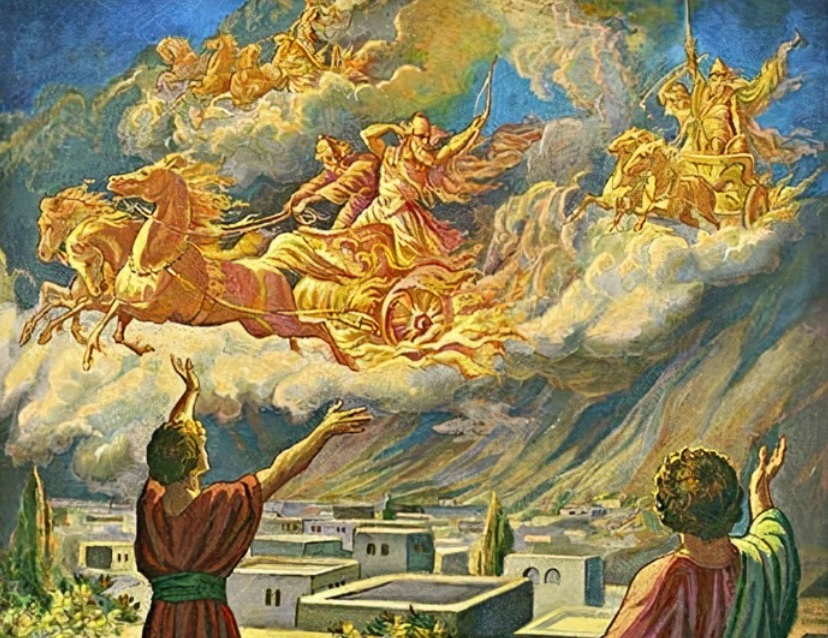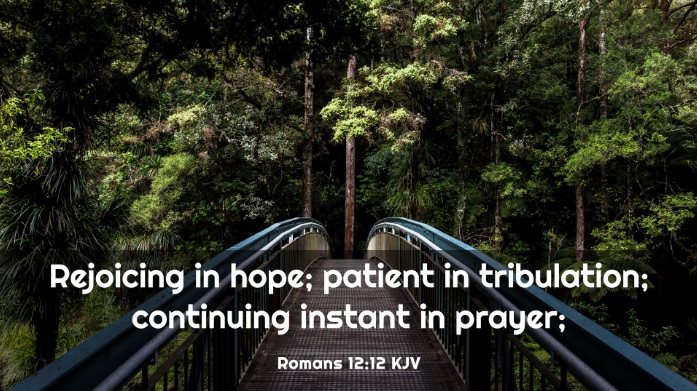“Go therefore and make disciples of all the nations…teaching them to observe all that I commanded you; and lo, I am with you always, even to the end of the age” (Matthew 28:19-20, NASB).
——————–
Contents:
1) 1 Corinthians 3:10-15 (Bobby L. Graham)
2) What Was David’s Sin in Numbering Israel? (Kyle Pope)
3) Some Things Christ Does Not Know (video sermon, Tom Edwards)
——————–

-1-
1 Corinthians 3:10-15
Bobby L. Graham
Question:
What does Paul mean in 1 Corinthians 3:10-15 when he speaks about a man’s suffering loss when his work is tried, but he is saved? Does this mean that one can teach false doctrine or practice sin and still be saved?
Answer:
The following brief analysis of this section of 1 Corinthians chapter three will prove helpful in answering this question. The church is identified as God’s vineyard or house in relation to the work done by men (1 Cor. 3:9b-17).
- Just as the tilled land and the house originate as products of God’s skill and care, so the church is the result of His divine labor, which often includes His workers (v. 9b).
- At Corinth, Paul had worked as a wise master builder (construction superintendent) and Apollos as a worker on the foundation laid by Paul (v. 10).
- Every man working on this building must do so carefully, because he must build on Christ alone (vv. 10-11).
- Paul viewed the work/converts of these workers as being of different quality (gold, silver, costly stones, wood, hay, stubble referring to different levels of stability or permanence when tested), which would be manifest by the trials coming (vv. 12-13). He shows the saints they were his work in the Lord in 9:1. Note that it is possible the word “day” in verse 13 refers to the Final Judgment, but it also could refer to the day of trial/testing coming to them. In the final analysis, which view one adopts has little impact on the overall meaning of this section.
- The fiery trials may cause the worker to lose his labor, and he himself will be tested (vv. 14-15). He will be saved because of his faithfulness, though his converts become faithless.
- He gave an additional warning to those destroying the temple of God/church (vv. 16-17).
The reader should notice that no reference is made to erroneous doctrine or practice in this section. To read such into any explanation of this problematic statement in verse 15 is unjustified. To do so is to be guilty of eisegesis (i.e., inserting into a passage what is not there), not exegesis (i.e., getting from a passage what is present). If a context does not deal with an idea, it is inexcusable to drag it into any explanation.
No, this statement does not justify the false teacher or one practicing sin by distinguishing between his sin and his salvation. It certainly does not teach that such a one can still be saved. The reader should study the following passages to learn that a saved person can fall from God’s grace and be lost (1 Cor. 10:12; Gal. 5:4; Heb. 3:12-14; 10:35-39; Jas. 5:19-20; 1 Pet. 1:3-5; 2 Pet. 1:8-11; Rev. 3:5).
— Via Truth Magazine, No. 9, Volume 63, September 2019
https://truthmagazine.com/kindle/2019/2019-09-sep/06_QnA.htm
——————–

-2-
What Was David’s Sin in Numbering Israel?
Kyle Pope
The selection of the site where the temple in Jerusalem was built came about in a most unusual way. Because David took a census of the Israelites, God was angry with him and told David that He would exact a punishment on the people (1 Chron. 21:1-8; 2 Sam. 24:1-11). God gave David a choice of which punishment He would inflict: three (or seven) years of famine, three months of defeat at the hands of their enemies, or three days of plague by the “sword of the Lord” (1 Chron. 21:9-13; 2 Sam. 24:10-14). The judgment was that the Angel of the Lord destroyed seventy-thousand Israelites (1 Chron. 21:14; 2 Sam. 24:15). As the Angel came to destroy Jerusalem, the Lord stopped the destruction when the Angel came to the threshing floor of a man named Araunah (or Ornan) (1 Chron. 21:15; 2 Sam. 24:16). David purchased this land and provided it to his son Solomon for the site where the temple would stand (1 Chron. 21:16-30; 2 Sam. 24:17-25). This is the same site where the Temple Mount now rises over the Old City of Jerusalem.
To understand this unusual event we must ask the question posed in the title of this article: What was David’s sin in numbering the people?
Scripture does not directly answer this question, but a few things can be inferred and a few possibilities deduced. First, it is clear that unlike the census Moses took, this did not come at the command of God (cf. Num. 1:2). 2 Samuel 24:1 records, “the anger of the LORD was kindled against Israel, and he moved David against them” (NKJV). Did God cause David to do this? No. This must be harmonized with 1 Chronicles 21:1 which says “Satan stood up against Israel, and moved David to number Israel.” How can both statements be correct? 2 Samuel 24:1 must be understood in terms of what God allowed Satan to do—not direct action on the part of God. This may be compared with Job 2:3. After Satan was allowed to bring trial upon Job, God said to Satan, “he holds fast to his integrity, although you incited Me against him, to destroy him without cause.” The same word is used in 2 Samuel 24:1 (“moved”) and Job 2:3 (“incited”). Although one concerns God and David, and the other Satan and God, both are interesting because of what is demonstrated in God’s own words. Satan “incited” God “to destroy” Job, but God did not act directly—He allowed Satan to act and God speaks of this allowance as His own action. In the same way, God allowed Satan to act to “move” David, but 2 Samuel 24:1 speaks of God’s allowance as God’s action. So what does this tell us about why David’s action was sinful? It indicates that David’s action was not from God, but within Satan’s will. So, David did not act by the command of God, but acted presumptuously to take this action.
A second possibility concerns David’s motive. The text doesn’t identify David’s motive, but there may be some inference that he did this for military or political reasons. Why would this be an offense to God? A principle that runs throughout God’s covenant with Israel was the power of numbers as a reflection of whether Israel trusted in God or its own power. In Deuteronomy 7:7 God declared, “The LORD did not set His love on you nor choose you because you were more in number than any other people, for you were the least of all peoples.” When God sent Gideon to lead the Israelites, He declared, “The people who are with you are too many for Me to give the Midianites into their hands, lest Israel claim glory for itself against Me, saying, ‘My own hand has saved me’” (Judg 7:2). As a young man David had understood this. He told Goliath, “the LORD does not save with sword and spear; for the battle is the LORD’s, and He will give you into our hands” (1 Sam. 17:4). Yet, it may be that in his old age David had either forgotten this or lost the same trust in God he had as a young man. Joab seemed to recognize what this reflected about trust in God. Although he hoped that the people would be multiplied “a hundred times more than they are” (2 Sam. 24:3; 1 Chron. 21:3) he feared David’s action would bring guilt upon Israel. Each of the punishments that God offered would have resulted in a reduction in numbers (1 Chron. 21:11-14). What happens is that God essentially forced on David a reduction of numbers (comparable to the voluntary reduction under Gideon). This may indicate that at least part of the sin concerned misguided confidence. David was trusting more in the size of his army than in the power of God.
Both possibilities offer important lessons for us today. It is just as important for us to act on the instruction of God, but never to go beyond His word. There is no record that God commanded David not to take a census, but His silence indicated that David was not authorized to do so. David acted presumptuously by going beyond God’s command, and we do the same if we add human innovations to worship, doctrine, or the organization of the Lord’s church. In the same way, we must avoid seeing the size of a congregation, or the popularity of a message as the reason we can take confidence in religious strength. God wanted Israel to trust in Him and not in its own size and greatness. He wants the same of His spiritual Israel—the church. Whether many or few accept the truth, it is still the truth, and our confidence must rest in God and His word.
While David sinned through presumptuous action and a failure to trust God, Hezekiah was the antithesis of this. When he learned of the threat of Assyria he looked to God and not the power of his own might. Because of his faith the Angel of the Lord killed the Assyrian army (which vastly outnumbered Israelite forces) but He did not destroy Jerusalem (2 Kings 19). In David’s sin, he was not personally punished. Instead, he along with the nation as whole was forced to remember that their strength rested in God, not in their own numbers. It is interesting that in the next generation (in spite of this reduction due to the plague), Israel grew to its largest extent in its history (cf. 1 Kings 4:21-24). Israel’s strength always rested in God. The same remains true for Christ’s church in today.
— Via Faithful Sayings, Volume 24, Issue 34 (August 21, 2022)
September 2019
https://truthmagazine.com/kindle/2019/2019-09-sep/06_QnA.htm
——————–
-3-
Some Things Christ Does Not Know
Tom Edwards
For the video sermon with the above title, just click on this following link while on the Internet:
https://thomastedwards.com/wordpress/Some_Things_Christ_Does_Not_Know.mp4
——————
The Steps That Lead to Eternal Salvation
1) Hear the gospel — for that is how faith comes (Rom. 10:17; John 20:30-31).
2) Believe in the deity of Jesus Christ, the Son of God (John 8:24; John 3:18).
3) Repent of sins. For every accountable person has sinned (Romans 3:23; Romans 3:10), which causes one to be spiritually dead (Ephesians 2:1) and separated from God (Isaiah 59:1-2; Romans 6:23). Therefore, repentance of sin is necessary (Luke 13:5; Acts 17:30). For whether the sin seems great or small, there will still be the same penalty for either (Matt. 12:36-37; 2 Cor. 5:10) — and even for a lie (Rev. 21:8).
4) Confess faith in Christ (Rom. 10:9-10; Acts 8:36-38).
5) Be baptized in water for the remission of sins (Mark 16:16; Acts 2:38; 22:16; 1 Pet. 3:21). This is the final step that puts one into Christ (Gal. 3:26-27). For from that baptism, one is then raised as a new creature (2 Cor. 5:17), having all sins forgiven and beginning a new life as a Christian (Rom. 6:3-4). For the one being baptized does so “through faith in the working of God” (Col. 2:12). In other words, believing that God will keep His word and forgive after one submits to these necessary steps. And now as a Christian, we then need to…
6) Continue in the faith by living for the Lord; for, if not, salvation can be lost (Matt. 24:13; Heb. 10:36-39; Rev. 2:10; 2 Pet. 2:20-22).
——————–
Tebeau Street
CHURCH OF CHRIST
1402 Tebeau Street, Waycross, GA 31501
Sunday: 9 a.m. Bible Classes and 10 a.m. Worship Service. We also have a Congregational Song Service at 5 p.m. for every first Sunday of the month.
Wednesday: 7 p.m. for Bible Classes
evangelist/editor: Tom Edwards (912) 281-9917
Tom@ThomasTEdwards.com
https://thomastedwards.com/go/all.htm (This is a link to the older version of the Gospel Observer website, but with bulletins going back to March 4, 1990.)





